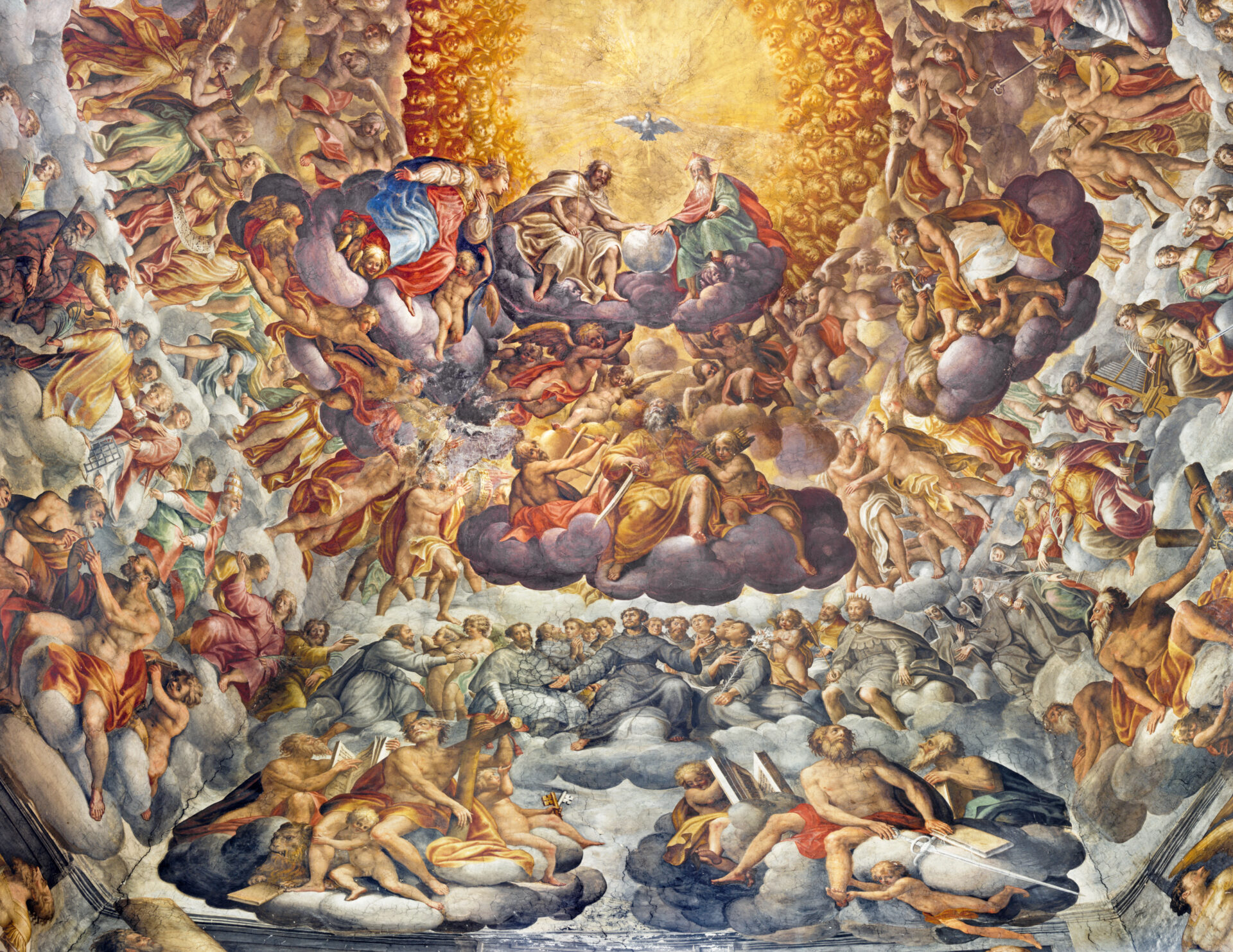
[Pearls Ep 155: Answering atheism Tuesday.]
As we complete our reflection on the kingdom of heaven, do you sometimes feel like you are living in two worlds – two kingdoms? This was St. Augustine’s theme for the colossal “City of God.” Augustine characterizes the Earthly City (modeled after the Roman Empire) as being “created by love of self, reaching the point of contempt of God.” And the City of God as, “the love of God to the point of contempt of the self.”
We see this playing out in our modern day Roman courts.
You may have heard this recent gem from World Economic Forum poohbah Klaus Schwab – “We couldn’t meet at a more challenging time,” he said, “we are confronted with so many crises simultaneously. What does it mean to master the future?”
Some might argue that we all want to “master the future” in one way or another, and Herr Shwab just wants to make the future brighter for everyone.
Now, I can’t climb in his creepy head, but there’s good reason to question whether Klaus’ vision of the future is truly “bright” and whether it is meant for “everyone” – but I assure you, it doesn’t involve God.
Disgraced New York Government Cuomo gave insight into the globalist mindset when he was crowing about supposedly conquering covid (later it would come out that the numbers were juiced up as they have been all along) – “The number is down because we brought the number down …God did not do that. Faith did not do that.”
Here’s the big challenge. If you go to the World Economic Forum, there’s no mystery that you’re in the Earthly City.
Just as, were you to visit, say, Lourdes, there’s no mystery that you entered a community striving to operate in the City of God, even as we pass through this fallen world.
St. Augustine puts his finger on the point of tension when he notes, “the two cities are confused together in this world”
Most of us live our lives in that messy, confused world, and there is no clean-cut answer on how to navigate the two worlds in this life. Just try wishing someone “Merry Christmas” in the average workplace, or talking about faith with fallen-away family members.
St. Augustine doesn’t pretend there are simple answers. And that’s what is interesting (and timeless) about Augustine’s City of God – he provides insightful diagnosis of the problem, but gives no simplistic answers.
While St. Augustine certainly believed that hell was well-occupied, he doesn’t outright condemn the Earthly City. And while he points to the Earthly City’s lust for “domination” he doesn’t advise fleeing, because he also recognizes that the struggle of the two cities, while very real at the societal level, also plays out in each of us.
What are we then to do? We remain present and we follow Christ’s example to serve our neighbor. Here Augustine seems to find the highest purpose of the Earthly City, as an instrument of God’s providence, as he recounts during the fall of Rome to the Visigoths, Christians “afforded shelter to fugitives, both Christian and pagan.” Just so, we need to be ready to aid those around us when they find themselves cast out by the Visigoths of our fallen world.
St. Augustine advised that “Christ is the straight way by which the mind escapes from the circular maze of pagan thought.” That same Christ is waiting for us in our time of meditation, each day to guide us through the “confusing maze.”
Blessings on your journey with Christ –
Steve and Karen Smith
Interior Life
Postscript: Matthew 4:12-17
When Jesus heard that John had been arrested, he withdrew to Galilee.
He left Nazareth and went to live in Capernaum by the sea, in the region of Zebulun and Naphtali, that what had been said through Isaiah the prophet might be fulfilled:
Land of Zebulun and land of Naphtali, the way to the sea, beyond the Jordan, Galilee of the Gentiles, the people who sit in darkness have seen a great light, on those dwelling in a land overshadowed by death light has arisen.
From that time on, Jesus began to preach and say,“Repent, for the kingdom of heaven is at hand.”
